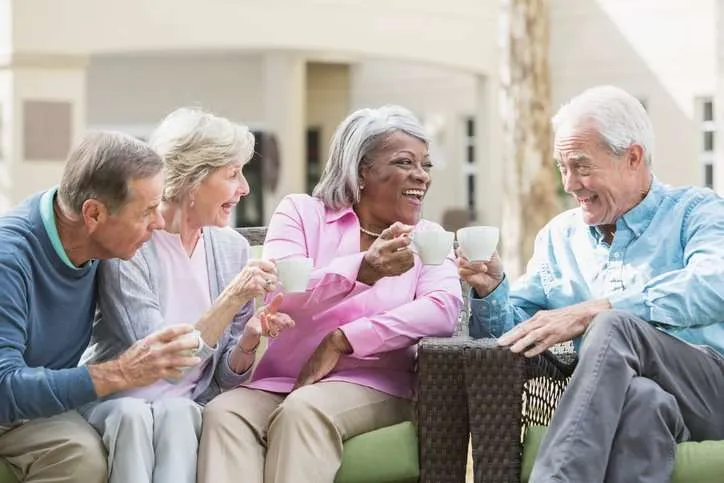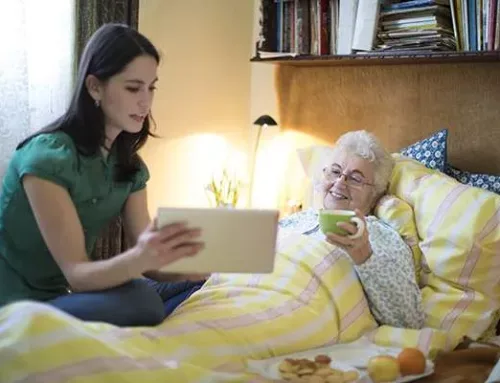Being social often means various things to different people: joining a club, heading out to lunch on a routine basis, working out at the gym, taking a class to learn a new hobby, or meeting up with friends for coffee weekly. For seniors that are homebound however, socialization might be limited to occasional telephone calls and visits. No matter how it is defined, socialization for seniors provides countless long-term health benefits. For older adults who struggle with a social lifestyle, in-home care can be particularly helpful.
Socialization Decreases the Risk of Disability
A report from Rush University Medical Center found that higher levels of socialization are connected to a decreased risk of becoming disabled. In fact, individuals who reported a higher degree of social activity were, on average, twice as likely to remain free of a disability involving activities of daily living (dressing, bathing, etc.) than those who have been less social. And not just that, individuals were almost two times as likely to remain free from disability involving instrumental activities of everyday living (housework, meal preparation, etc.) and mobility.
Socialization Enhances Quality of Life
A study of over 3,000 women with breast cancer revealed a connection between physical symptoms and socialization. The women answered questions regarding their activities and social interactions, along with their emotional and physical state during treatment. The results indicated that those who had good social support experienced fewer physical symptoms during treatment and had an elevated emotional state compared to those who reported little if any social interactions.
Socialization Helps People Live Longer
Socialization can contribute to an increase in both quality and length of life.
- University College London tracked 6,500 British seniors from 2004 to 2012. Those who lacked socialization were nearly 26% more likely to die during that period than older adults with active social lives.
- A research study conducted in Australia followed older adults during a ten-year period. In people 70 years and older, the chance of dying decreased by as much as 20% among those who had a strong and supportive network of friends. It’s important to note that having social interactions with friends provided a greater impact than interactions with family members.
The benefits of socialization for seniors are clear, and the care team at Lend a Hand Home Care can help! We offer award-winning Sparks senior living assistance for older adults that includes friendly companionship, transportation and accompaniment to outings and visits with friends, encouragement to take part in exercise programs, hobbies, and interests, and much more. Contact us at 775-322-8414 to explore additional creative ideas to enhance socialization for a senior in your life! For a full list of all of the communities where we provide care, please visit our Service Area page.





